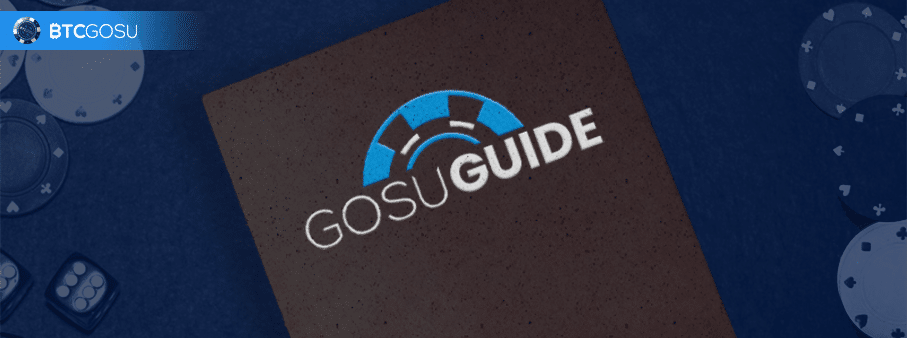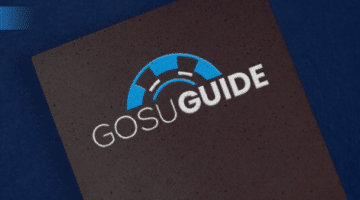Even though it is common for articles on gambling addiction to casually state that only around 1% of people suffer from this impulse control disorder, that is inaccurate. According to the North American Foundation for Gambling Addiction, precisely 2.6% of the US population has some wagering problem. And the National Council for Problem Gaming claims that two million American adults meet the criteria for struggling with a severe gambling issue. Furthermore, in Britain, the charity BeGambleAware recently cited a 2021 YouGov survey that showed that 1.4 million Brits are at risk of experiencing harm due to their gambling habits, and they can inflict suffering, represented by emotional and financial damage upon 1.5 million others.
Hence, there is no denying that gambling is an activity that brings about specific dangers to people that face impulse control issues. In textbooks, compulsive gaming gets defined as the continuous urge to wager money despite consciously knowing the risk associated with overindulging in this pastime. Still, some people cannot control themselves, it is how they have gotten naturally hardwired, and that is where self-exclusion comes in.
What is self-exclusion? It is a voluntary ban that gamblers evoke on themselves as a tool to stop them from continuing betting and potentially inflicting self-harm to a substantial degree. Self-exclusion bans get enacted by individual gambling sites, regulator networks, or government organizations. They are a thing at many high-end crypto casinos, and anyone who feels that they are no longer in control of their betting facilities should immediately seek to enforce a self-exclusion ban upon themselves.
How Self-Exclusion Bans Work
A self-exclusion ban stops gamblers from using a casino website or internet sportsbook for gambling entertainment. Such a restriction is almost always irreversible and can get triggered from inside a gambler’s account page. It will be under the responsible gambling tab in most cases.
Usually, when looking to activate this measure, problem gamblers, or ones suspecting that they are near to getting classified as such, will note multiple ban periods to choose from, meaning different cool-off timeframes. It is hardly doubtful that any of these will be shorter than three months or longer than five years. Nevertheless, there will probably have three or more choices present.
After figuring out what period is right for them, a gambler can click the corresponding button and trigger their self-exclusion period. There is no way to cancel it once it gets accepted by an operator. Contacting customer support won’t work because support agents get instructed to ignore such pleas. If they didn’t, these suspensions would serve no purpose.
These bans function by operators putting a person’s registration info and login credentials in a database. And if that individual attempts to access the platform from which they self-excluded, they will automatically get denied access.
Know Your Customer procedures implemented by thousands of gaming hubs on the Web mandate that players fork over copies of their IDs and utility bills before they can complete a withdrawal or after sign-up. Once they do that, there is no way for them to bypass an activated self-exclusion moratorium. Even if they register using different credentials (username, email), quickly, the site in question will again ask them to fulfill the hub’s KYC policy. That means to supply an ID and proof of address, at which point they will get unmasked as the excluded gambler and receive another ban.
Universal Self-Exclusion Programs
What is a universal self-exclusion? It is a national or region-wise database that stops excluded players from continuing their gambling ways at a collection of sites. How is this possible? It is simple, in the UK, in 2020, the UK Gambling Commission paired up with the National Online Self Exclusion Scheme Limited to bring the latter’s self-exclusion system, GamStop, to all UKCG-licensed internet casinos and sportsbooks. Therefore, all UKGC-regulated site operating in Britain tie into the GamStop database, and when a user at one chooses to self-exclude at a distinct hub, his name and info get jotted down in this ledger. So, if he tries to create an account at a different UKGC-approved casino with the same credentials, upon the registration process, that site must check if his name and info are in the GamStop database. If they are, it must reject that player.
Essentially, if a UK player self-excludes from one UK-based online casino, he can no longer play at any UK site operating from the country’s borders until his ban period expires.
In 2021, Germany started to dive deeper than ever into monitoring online gambling thanks to the recent amendments to its Interstate Treaty on Online Gambling (GluStV). That move got followed up with the introduction of OASIS, a self-exclusion system almost identical to GamStop. Also, in 2021, the Netherlands passed its Remote Gaming Act. That law set the ground for this country’s gambling operators to offer services in the digital sphere. It also birthed the CRUKS exclusion register.
In Europe, the Swedish Gambling Authority established this kind of universal self-exclusion even before GamStop became a thing in the UK. Sweden’s Spelpaus debuted in 2019. And it received a massive update in 2022. Within three years, this database has written down the names of 75,000 Swedish gamblers that have opted to excuse themselves from betting fun. They have done so to stop themselves from wagering too much. Plus, get an opportunity to reflect on their compulsion toward this pastime.
Site-Specific Self-Exclusion
Universal self-exclusion, as in the systems detailed above, is a product of government and public pressure to lower gambling addiction rates in specific countries. It is only valid for territories that one regulator licenses and oversees. Seeing as most crypto casino sites operate under the supervision of Curacao master license holders, these regulators have no such systems, and Curacao’s government is not pressing them to look after the rights and well-being of their international player pool
That lack of a significant push for promoting and enforcing responsible gambling has led Curacao regulators and other internationally-licensed operators to leave self-exclusion in the hands of their operators. Some such companies have no dedicated schemes and will ban players after gamblers contact them via email asking that they impose this kind of ban on them. Sometimes its application is immediate. Others, it is not.
Realistically, online casinos are businesses, and they do not want to ban customers who cannot stop themselves from giving them money. Yet, industry practices mandate that they do, and so do veteran gamblers. Not following through with self-exclusion is a significant red flag, and it causes damage to a site’s reputation. Online casinos should care about their customers and aim to keep gambling strictly an entertainment-based hobby.
While site-specific self-exclusion works, it does not stop problem gamblers from opening an account at a different platform and feeding their compulsion there. Moreover, given that operators have multiple casino brands in their portfolios that supply almost identical promo offers and game libraries, these bans serve little practical value. An operator rarely implements self-exclusion within their network of sites. Alas, this anti-gambling restriction is not super effective.
In truth, gamblers residing in stringently regulated markets can also opt to play at offshore sites that accept players from their country, circumventing their activated gambling measures. Accordingly, no self-exclusion system is fool-proof. Though, the harder it makes things for those with impulse control issues to cave into the temptation of betting, the better.







Login
Register